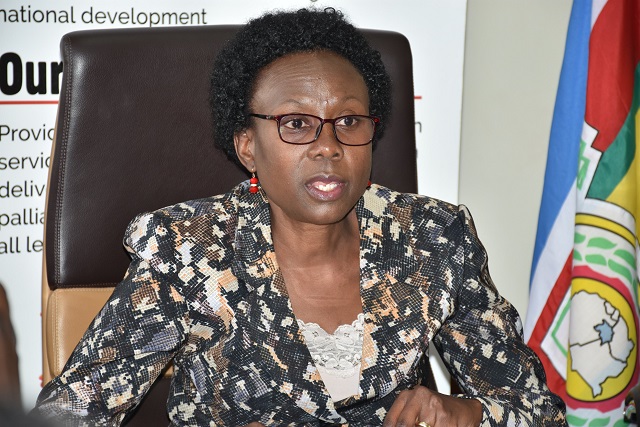
Kampala, Uganda | THE INDEPENDENT | The Ministry of Health is processing a concept note to show how they will utilize grants worth USD 600 million approved by the Global Fund to tackle HIV, Tuberculosis (TB) and Malaria.
According to Health Minister Dr Jane Ruth Aceng, this additional funding that will be reflected in the final budget call circular for the FY 2020/21 budget is meant to give the sector a boost since the country’s revenue collection is not enough to cater for all the health needs.
Of the USD 600 million, USD 260 million goes to malaria, USD 289 million to HIV/AIDS and USD 29 million to TB. The balance also referred to as matching funds will go into activities targeted for specific populations. For instance, USD 4.7 million will go into ensuring young women and adolescents get the care they need and USD 2.5 million into procurement of HIV self- testing kits.
USD 4.5 is to cater for human rights-related activities and breaking social barriers that harbor stigma whereas USD 3 million will go into data science which involves awareness and community information activities.
In an interview with Uganda Radio Network, Dr Joshua Musinguzi, the Programme Manager AIDS Control at the Ministry of Health said meetings to discuss utilization have been finalized and they hope this money that is set to be utilized within three years up to 2023 will be available for use by next year.
With the money coming, Musinguzi says that in his docket, they are set to get an additional 60 to 100 billion shillings for the purchase of Anti- Retroviral (ARVs) drugs. He is optimistic that with this, the number of people on treatment will increase and Uganda will have better chances of achieving the 90-90-90 targets.
Under the targets, UNAIDS anticipates that 90 per cent of the people will have tested for HIV, 90 percent of those tested will have enrolled on treatment and 90 per cent of those on treatment will have suppressed the virus to undetectable levels by 2020. To date, only 73 percent of Persons Living with HIV are on treatment while 65 per cent of persons living with HIV and on treatment have their viruses suppressed.
Also planned is targeted testing intended to increase the number of men aged between 15 to 39 years, who know their HIV status.
“We don’t have enough test kits to give for free to everyone. That’s why we started involving the private sector. We agreed with them to sell at a subsidized price for those that can afford. You know we think with self-test the challenge of stigma is ruled out”.
However, Aceng says that Uganda got this additional funding from the donors because the country has also been contributing to the fund. By December, the country had contributed USD 2.38 million of the USD 5.5million total pledge. According to Global Fund, Uganda has pledged to contribute more USD 2 million for its sixth replenishment covering 2020 to 2022.
Uganda’s history with utilizing the fund’s money has also shoddy with officials in the early 2000s’ swindling the funds that led to brief withholding of the money, again the country was warned about non-utilization in 2016 after a donor audit report raised some queries.
But the Ministry of Health says they have put in place mechanisms that the money is utilized and protected from theft. One of the approaches is for the Ministry to only play a distribution and allow the fund to order the drugs and the necessary supplies.
******
URN
 The Independent Uganda: You get the Truth we Pay the Price
The Independent Uganda: You get the Truth we Pay the Price





